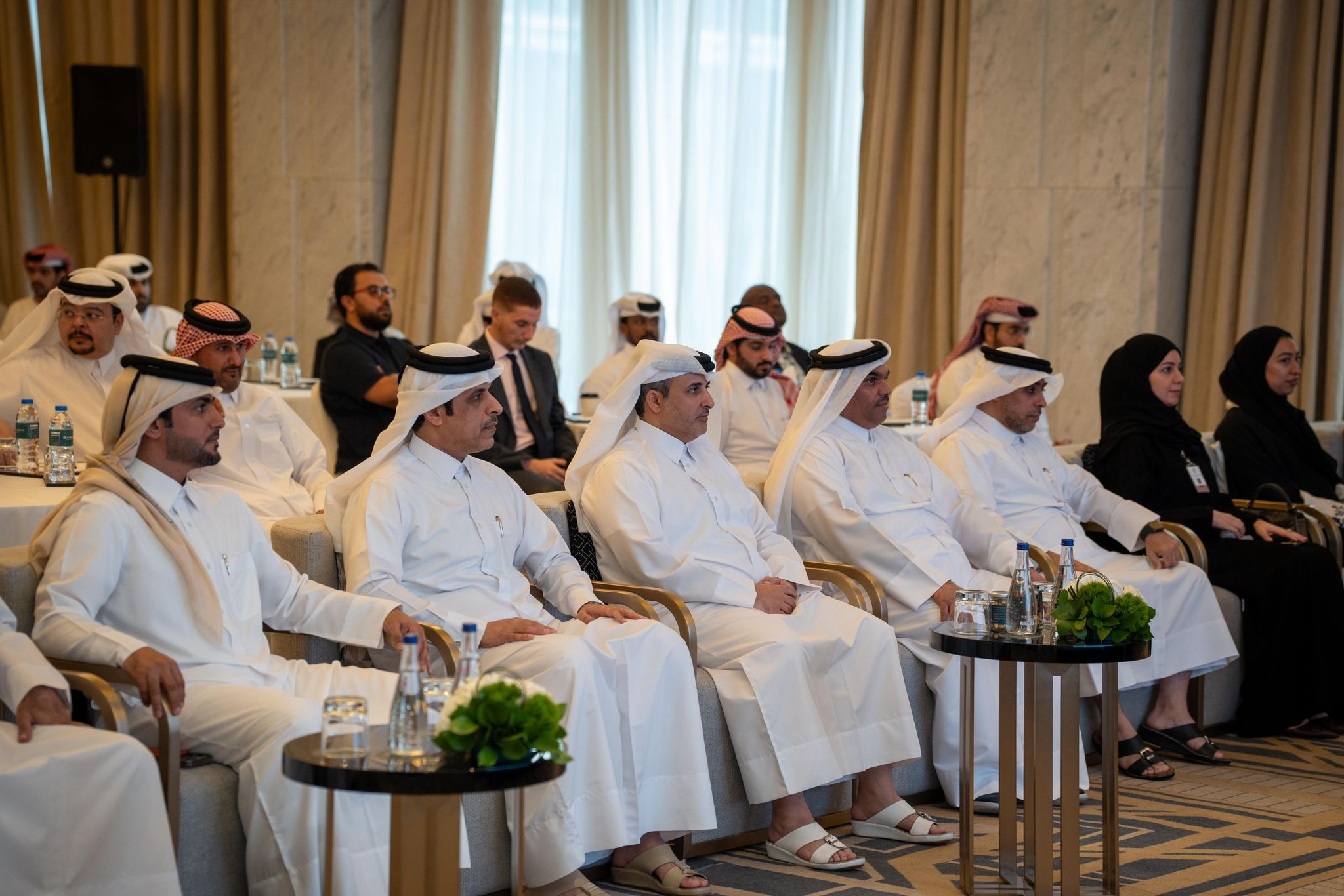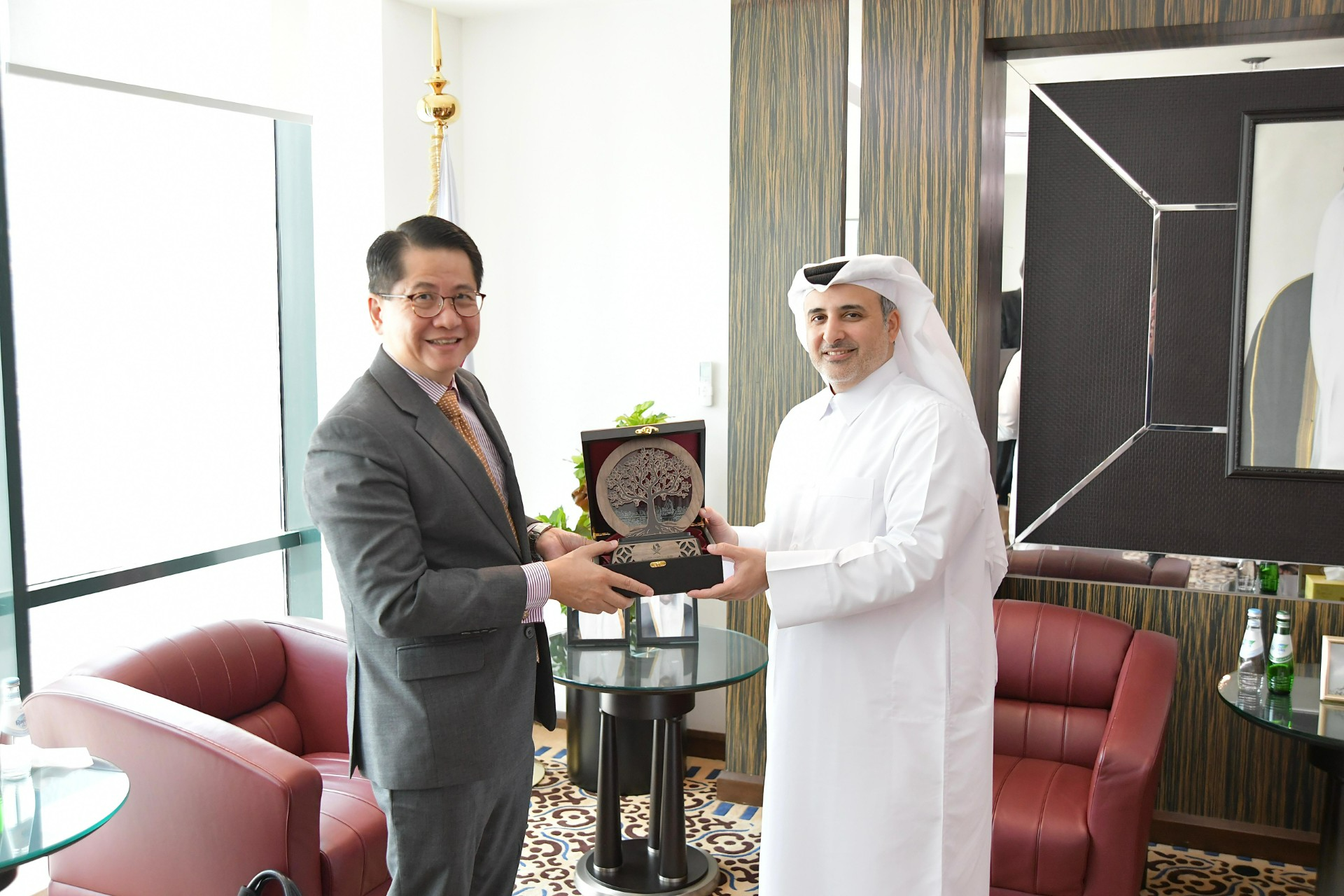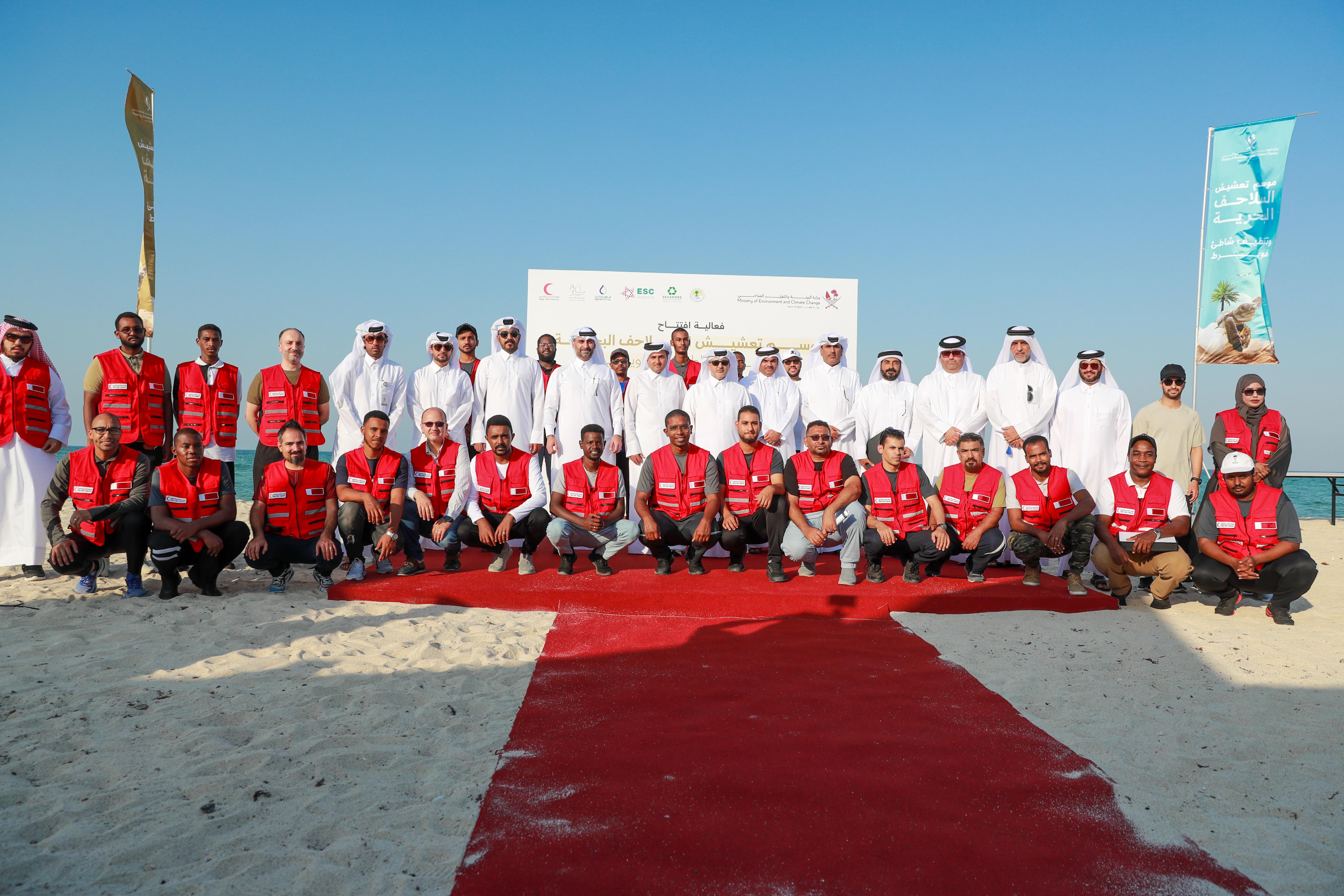
The Ministry of Environment and Climate Change Organizes the National Workshop on CITES and Combating Illegal Wildlife Trade in the Presence of His Excellency Dr. Abdulla bin Abdulaziz bin Turki Al Subaie
The Ministry of Environment and Climate Change organized, this morning, the national training workshop on the Convention on International Trade in Endangered Species of Wild Fauna and Flora (CITES) and combating illegal wildlife trade, in cooperation with the International Fund for Animal Welfare (IFAW), which will run from 3 to 7 March 2024, in the presence of H.E. Dr. Abdulla bin Abdulaziz bin Turki Al Subaie, Minister of Environment and Climate Change.
The workshop was attended by Dr. Ibrahim Abdul Latif Al Maslamani, Assistant Undersecretary for Protection and Natural Reserves Affairs, Eng. Ahmed Mohammed Al Sada, Assistant Undersecretary for Climate Change Affairs, Mr. Abdulhadi Nasser Al Marri, Assistant Undersecretary for Environmental Affairs, representatives of the International Fund for Animal Welfare (IFAW), a number of representatives of the Ministry of Environment and Climate Change, and those interested in environmental affairs and wildlife in the State of Qatar.
H.E. Dr. Abdulla bin Abdulaziz Al Subaie, Minister of Environment and Climate Change honored the workshop trainers in recognition of their role in the success of the workshop.
The workshop aims to raise the level of national skills and competencies of those working in the implementation of the CITES Convention, exchange best practices for the implementation of this Convention, in addition to introducing the most endangered fungal species that are vulnerable to international trade, with the aim of raising awareness and keenness to protect and preserve them.
In his speech at the event, Mr. Mohammed Al Khanji, Director of the Wildlife Development Department, stressed the need to regulate international trade operations for fungal species, whether animal or plant, and their products, which include more than 35,000 plant and animal species, noting that this is the goal sought by CITES Convention, in addition to reducing smuggling and combating illegal trade across international borders.
Al Khanji explained that the State of Qatar, in order to abide by the Convention signed by Qatar in 2001, has developed procedures to regulate the import, export or re-export of endangered living organisms and their products, and has allocated a unit at all ports of the country to monitor the import, export or transit of endangered species, in addition to the application of ownership certificates for falcons (falcon transit document) in order to facilitate the movement of falcons across international borders, and the establishment of a database for falcon owners.
He also pointed out that Qatar organized the first national workshop on CITES Convention, followed by a workshop at the level of the Gulf Cooperation Council (GCC), and a law was issued to regulate trade in endangered species of wildlife and its products, pointing out that the Conference of the Parties (COP12) hosted the CITES Convention in the country in 2010, which came from Qatar’s belief in the importance of preserving endangered fungal organisms, as this version witnessed the adoption of important decisions on the protection of wildlife and combating illegal trade in wildlife.
Concerning the steps that the Ministry of Environment and Climate Change will take within the framework of its commitment to the CITES Convention, the Director of the Wildlife Development Department stressed the ministry’s intention to convert the services of the Convention to fully electronic during this year, and work on preparing and developing procedures related to the regulation of trade in order to preserve imported endangered species, as well as establishing a unit to monitor markets and shops, and establishing a unit to register farms that contain endangered organisms, pointing to cooperation with the Cybercrime Department at the Ministry of Interior. The Anti-Smuggling Department at the General Authority of Customs to monitor and detect trade in endangered species published on websites.
He also pointed to the steps that the ministry will take in this regard, which include updating the law regulating trade in endangered species of fungal organisms and its products, to include new articles related to regulating trade in endangered species locally, and the opening of new headquarters at the sites of bird shops to monitor them continuously, and the possibility of issuing permits from those offices.
For his part, Dr. Akram Issa Darwish, Director of the Regional Office of the International Fund for Animal Welfare, praised the efforts of the State of Qatar in protecting endangered animals, noting that the organization of this workshop is a highly positive indicator of the State of Qatar’s interest in this regard, and valued the distinguished efforts made by the Ministry of Environment and Climate Change, in order to preserve wildlife, through the enactment, modernization and implementation of relevant legislation and laws and building local capacities.
Dr. Akram Darwish pointed out that this workshop represents an important step in the field of combating the illegal trade in wildlife, by contributing to building human capacities, introducing the most traded species in the region, as well as building strategic relations and establishing channels of communication between the concerned parties to implement the CITES Convention in order to combat illegal trade in wildlife, and enhancing capabilities that contribute and help implement the roles of the participating entities.
The representative of the International Fund for Animal Welfare stressed that the Middle East and North Africa region is one of the most important transit corridors for the global wildlife trade between Africa, Europe and Asia, and that a number of countries in the region have a wealth of wildlife that cannot be compensated in the event of its loss, as the illegal trade in wildlife (both internationally and locally) is one of the most important threats to the survival of wildlife at the level of communities, species and ecosystems.
He pointed out that the International Fund for Animal Welfare (IFAW) relies in its work in the region on cooperation with governments and accredited organizations, and that the Fund supports activities and programs related to animal welfare and the preservation of wildlife in their natural habitats, and calls for the adoption of legislation and procedures that ensure the protection and preservation of animal species, pointing out that interest in wildlife comes from a fact adopted by the introduction to the Convention on International Trade in Endangered Species of Wild Fauna and Flora.
He also indicated that the International Fund for Animal Welfare (IFAW) relies in its work in the region on cooperation with governments and accredited organizations, supports activities and programs related to animal welfare and the preservation of wildlife in their natural habitats, and calls for the adoption of legislation and procedures that ensure the protection and preservation of animal species, noting that the interest in wildlife comes from a fact adopted by the preamble to the Convention on International Trade in Endangered Fauna and Flora, which is that “groups of fungal animals and plants in its various beautiful and diverse forms are an irreplaceable part of the Earth’s natural systems and must be protected for present and future generations.”
It is worth noting that the workshop will last for five days and is characterized by the presence of the authorities related to the implementation of the Convention on the Regulation of International Trade in Endangered Fauna and Flora (CITES) in the State of Qatar, and includes reviewing the experiences of Gulf countries and highlighting the most important endangered animals and plants in the region.


